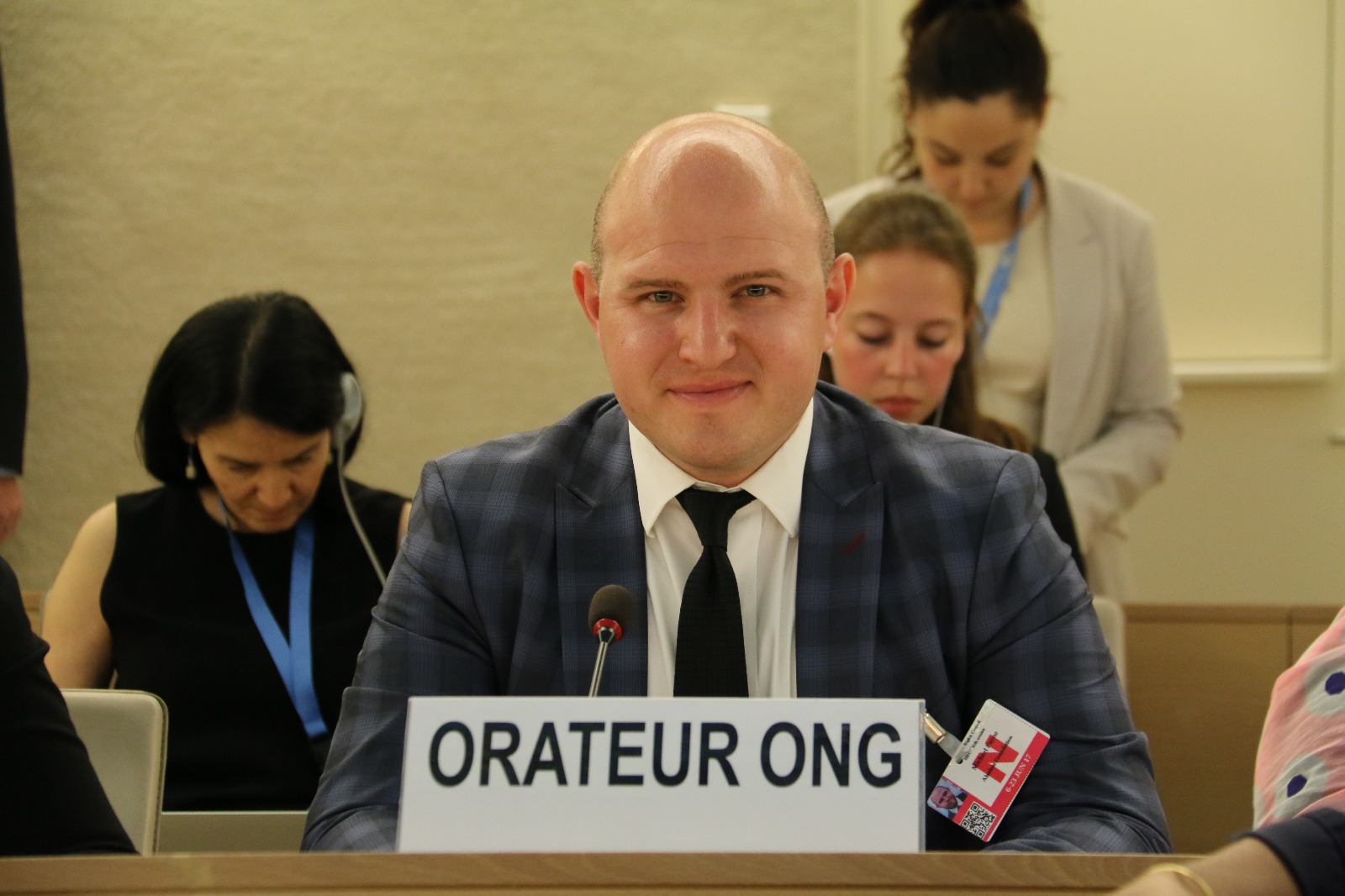On 12 June 2017, Michael Payne, ADHRB’s international advocacy officer delivered an oral intervention under the Item 3 Interactive Dialogue with the Rapporteur on independence of judges and lawyers and the Rapporteur on violence against women. In his intervention, Payne raised the cases of Loujain al-Hathloul and Ebtisam al-Saegh in the context of targeting women human rights defenders. He also raised concerns regarding Bahrain’s implementation of military courts to try civilians for terrorist crimes. Please continue reading for the full text of his remarks, or click here for PDF of his intervention.
Mr. President,
Alsalam and ADHRB would like to thank the Special Rapporteurs for their reports, in particular Mr. García-Sayán for his first report to this Council.
Dr. Simonovic, in addition to prosecution Ghada Jamsheer, whose case you took up in the Joint Communications report released this session, Bahrain has continued to target woman human rights defenders. Most troubling has been the case of Ebtisam al-Saegh, who has been targeted in recent weeks for her work at the Human Rights Council. Prior to the 34th session of the Human Rights Council session, Bahraini authorities summoned Ebtisam for interrogation and intimidated her. Following her participation in the 34th session, she was slandered in state-backed media and suffered a suspicious car fire. At the end of last month, Ebtisam was summoned by the National Security Agency, where she suffered physical and psychological torture, including beatings and sexual assault, during her 7 hour interrogation. During her torture, government officials directly asked her about her work at the Human Rights Council. Madam Rapporteur, this is a clear case of reprisals.
Mr. García-Sayán, we thank you for your report and for the work of your mandate. However, we would like to call an urgent matter to your attention in the Kingdom of Bahrain. The Bahraini government recently passed a constitutional amendment authorizing military courts to try civilians in cases of terrorism. Bahrain’s opaque military court proceedings leave defendants at significant risk of abuse, and historic examples from 2011 suggest that civilian defendants will be sentenced to exceedingly harsh sentences with little more than coerced confessions from torture admitted as evidence. Military trials for civilians is an absolute and grave violation to these defendants’ due process rights.
Dr. Simonovic, what steps can you advise this Council to take to address reprisals against women human rights defenders, particularly WHRDs that suffer from violent reprisals like Ebtisam?
Mr. Garcia-Sayan: does your mandate intend to report on the ways in which the use of military courts against civilians, particularly targeting prisoners of conscience, illustrates a critical systematic failure in protecting human rights in the judiciary?
Thank you.





